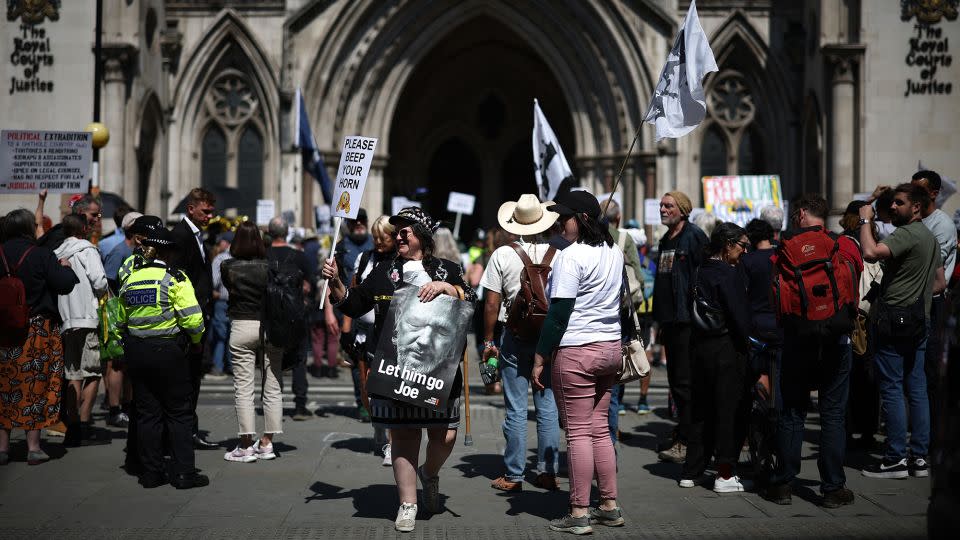Julian Assange can appeal extradition to the US, UK court rules
London’s High Court has ruled that Julian Assange has the right to appeal in his final challenge against extradition to the United States.
The legal victory for the WikiLeaks founder was cheered by dozens of his supporters as they rallied outside the court in the British capital.
Some beat drums, some shouted “drop the case,” while other supporters held placards reading “Let him go Joe,” in reference to US President Joe Biden.
Assange’s legal team argued in Monday’s hearing that the judges, Victoria Sharp and Jeremy Johnson, should not accept the assurances given by US prosecutors that he could seek to rely on the rights and protections under the US First Amendment.
His team made the case that, if extradited, Assange could be discriminated against on the basis of his nationality, as an Australian-born foreign national.
In a short ruling, the judges said the US submissions were not sufficient, granting Assange permission to a full appeal in relation to the legal points on freedom of speech and nationality.
A date has not yet been set for the next hearing.
The 52-year-old is wanted by US authorities on espionage charges connected to his organization’s publication of thousands of classified documents and diplomatic cables in 2010 and 2011. Assange faces spending the rest of his life behind bars if convicted.

Stella Assange, Julian’s wife, said outside the court that Monday’s ruling “marks a turning point.”
“Everyone can see what is going on here: the US case is offensive, it offends our democratic principles. It offends our right to know it is an attack on journalists everywhere,” she continued.
“We are relieved as a family that the courts took the right decision today. But how long can this go on for?”
Activist Redde Jean-Baptiste told CNN that one of Assange’s lawyers had said the WikiLeaks founder had been having sleepless nights.
“(He’s) trying to prepare for a case that would determine his life or his death, so as you can imagine the pressure he’s been under that is torture in itself,” Jean-Baptiste said.
Jean-Baptiste added that Monday’s ruling is a “glimpse of hope for him” and “we are now on the right path.”
unknown content item
-
In March, the London court delayed its decision on an extradition as the judges sought a series of assurances, around both the First Amendment protections and the death penalty.
The United States will not seek a death penalty if Assange is extradited, the High Court was told on Monday.
“The United States assures that he will not be tried for a death-eligible offence,” according to documents submitted by lawyers representing the US government.
It has been 12 years since the Australian has lived freely. Assange has spent the past five years in London’s high-security Belmarsh prison and nearly seven years before that holed up at the Ecuadorian embassy in the city trying to avoid arrest. He maintains his extradition is politically motivated.
Alan Rusbridger, editor of the UK political monthly Prospect Magazine, wrote in an op-ed for CNN that working with Assange was “often a bumpy ride” but that their collaboration while he was still the Guardian’s editor-in-chief was “groundbreaking.”
He added that the US case looks “like a very belated attempt to punish whistleblowers and discourage journalists, whether conventional or not, from poking their noses where they’re not welcome.”
This story has been updated.
For more CNN news and newsletters create an account at CNN.com


